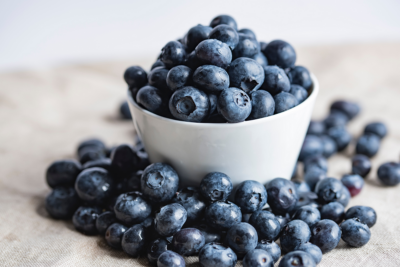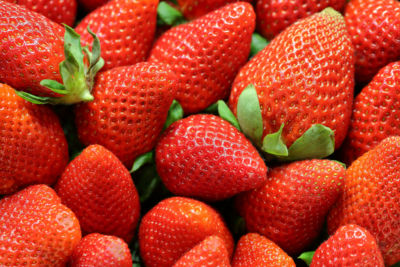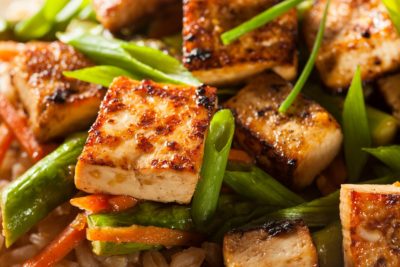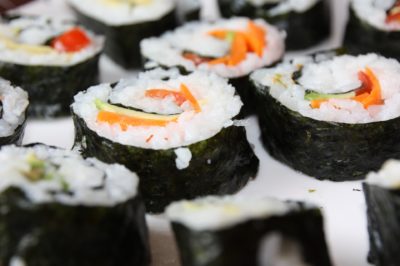What are the best vegan sources of omega-3 and -6? Can we get enough omega fatty acids on a plant-based diet? We explain all below.

One of the most persistent myths about plant-based diets is that they lack essential nutrients, such as omega fatty acids. We’re told seafood is the best source of omega-3 and -6.
However, this isn’t true. Fish isn’t quite the superfood we’re told it is and you can obtain omega 3 and 6 fatty acids when eating a vegan diet.
What are fatty acids?
There are four types of fat: saturated, monounsaturated, polyunsaturated and trans fats. Saturated and monounsaturated fats are called non-essential fats, as our bodies can make all they need of these.
Trans fats are described by Harvard T.H. Chan School of Public Health as “the worst type of fat for the heart, blood vessels, and rest of the body,” and are to be avoided at all costs.
But then comes polyunsaturated fats, which are known as “essential fats” because we need to obtain them from our diets, of which there are two types: omega-3 and omega-6 fatty acids.
fats are our friends
We need fatty acids to ensure the proper functioning of all our tissues, so it’s great that our bodies are able to make almost all the fatty acids we need.
But we do need to know about omega-3 and omega-6, as deficiency is associated with kidney disease, heart disease, Alzheimer’s, osteoarthritis, bowel disease and depression.
getting the balance right
It is very easy to get sufficient omega 6 on a balanced diet as it can be found plentifully in leafy vegetables, seeds, nuts, grains and most vegetable oils, but this is where things start to get a little tricky.
In all people, regardless of their diet, omega-6 acids compete with omega-3 acids for use in the body. So, while we don’t need to worry too much about our omega-6, we do need to pay attention and ensure we are eating sufficient omega-3 on a daily basis.
There has been much discussion and debate about the optimal ratio of omega-3 to omega-6 fats, with some confusing advice arising as a result. The clearest, most useful advice, however, comes from Harvard Medical School:
“Most Americans eat more omega-6 fats than omega-3 fats, on average about 10 times more. A low intake of omega-3 fats is not good for cardiovascular health, so bringing the two into better balance is a good idea. But don’t do this by cutting back on healthy omega-6 fats. Instead, add some extra omega-3s.”
So, in a nutshell, we need to make sure we include a good source of omega 3 in our diets every day.
Vegan OMEGA-3 sources
- Walnuts
- Ground flaxseeds (also known as linseeds)
- Chia seeds
- Hemp seeds
- Seaweed
- Rapeseed oil (also known as canola oil)
- Small amounts can also be found in other nuts and seeds, soya products, beans, vegetables and whole grains
easy ways to get your omega-3
- Walnuts are great in salads, on breakfast cereals, added to bread or cake mixes, or just as a snack
- Flaxseeds can be added to smoothies, sprinkled over muesli or cereal, and can be used in place of eggs in baking
- Add flaxseeds or chia seeds to plant-based yoghurts, muesli, pancakes or flapjacks
However, omega-3 is not available in sufficient quantities from plant-based food so vegans must take it as a supplement. Look for a brand made with EPA and DHA from microalgae.
delicious recipes with omega-3
- Perfect for summer, try this walnut and pear salad with date and balsamic sauce
- A fan of seaweed? You’ll love this sweet & sour wakame salad
- Strawberry chia seed shortcakes taste so good
- We love this flavourful and healthy chia seed pudding
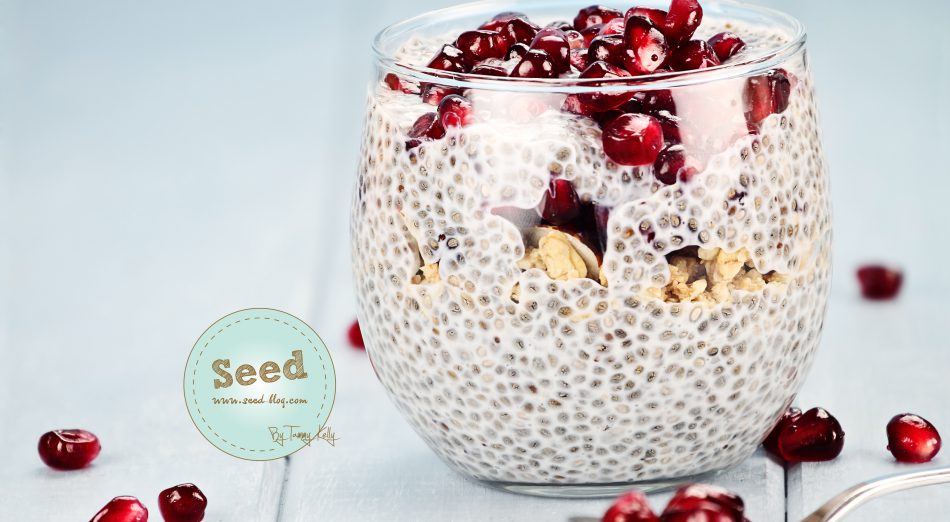
Vegan Omega-6 Sources
- Walnuts
- Almonds
- Cashews
- Tofu
- Hemp seeds
- Sunflower seeds
- Safflower oil
- Avocado oil
For more support with plant-based nutrition, check out Dr Greger’s Daily Dozen checklist.

